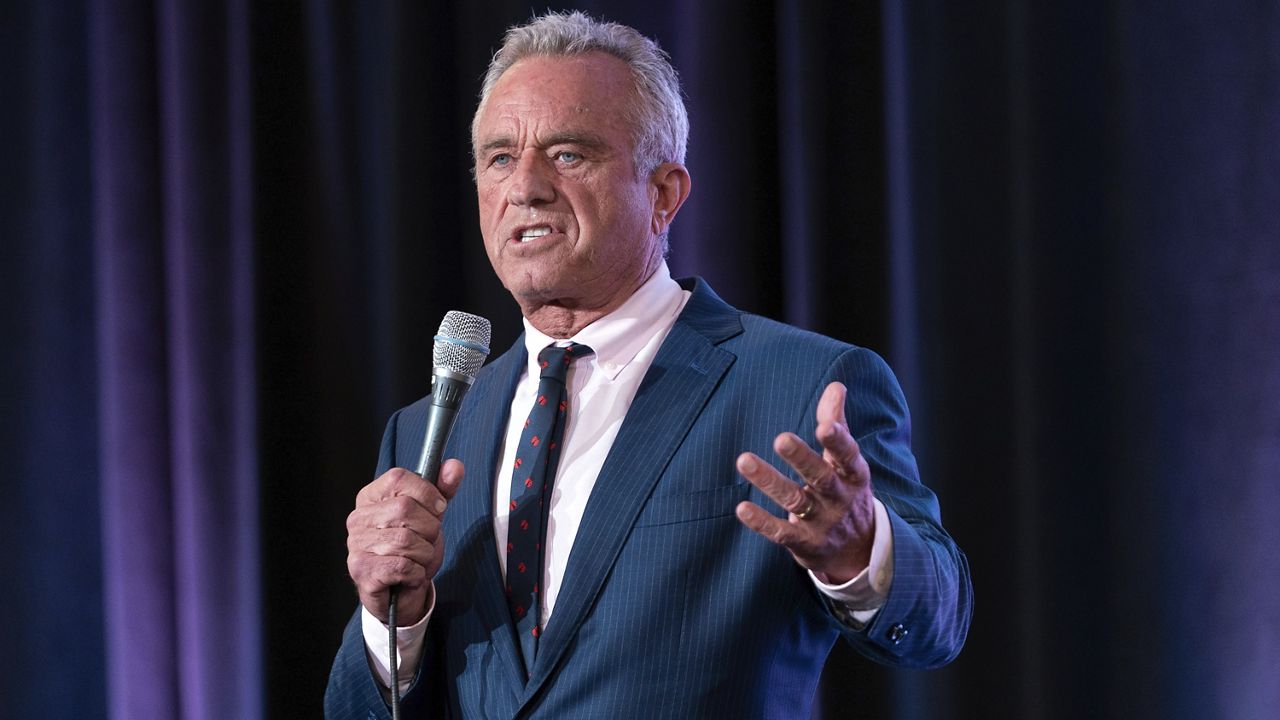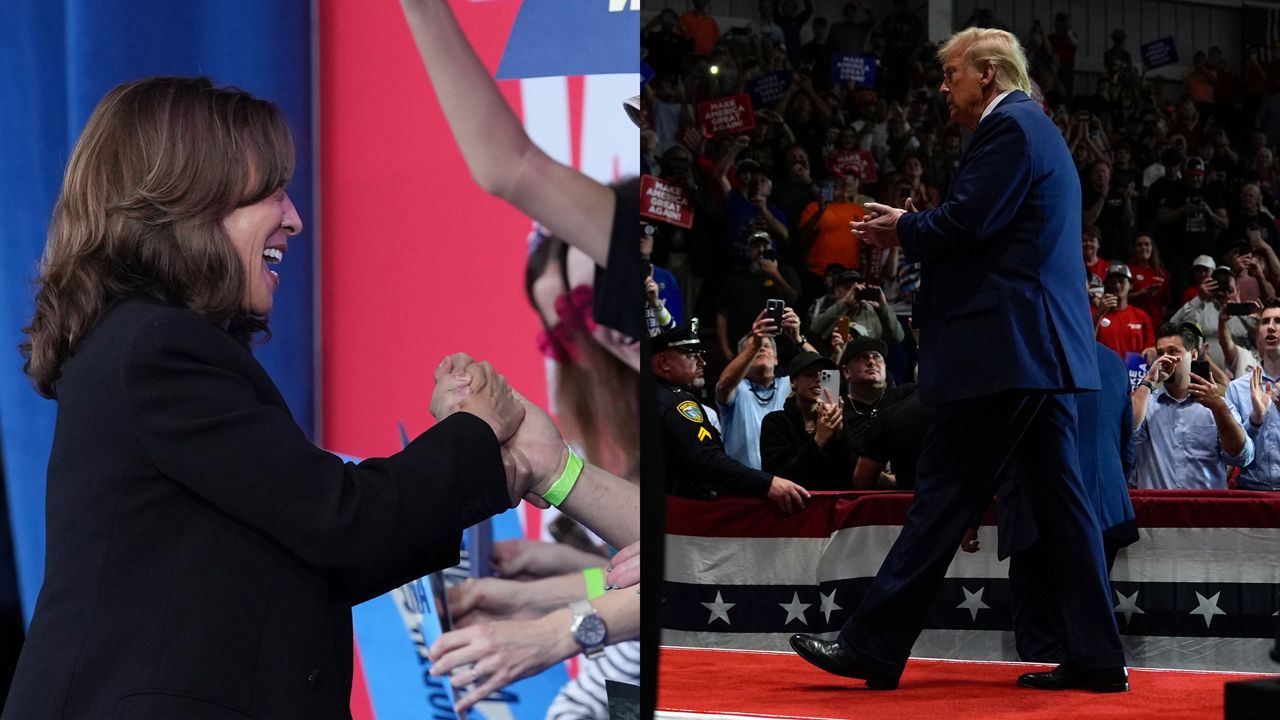RALEIGH, N.C. (AP) — Robert F. Kennedy Jr. lost twice Thursday in his battles to stay on the presidential ballot in some states and get off of it in others.
North Carolina’s elections board refused to take him off that state’s ballot, with a majority saying it was too late in the process for him to withdraw. Meanwhile, an appeals court in New York rejected Kennedy’s request to get back on the ballot there, upholding a judge's decision to disqualify him for having lied on elections paperwork about where he lived.
On Friday, Kennedy suspended his campaign and endorsed Republican Donald Trump. He has since sought to withdraw his name from the ballot in states where the presidential race is expected to be close, including North Carolina.
Simultaneously, he has tried to stay on the ballot in states like New York where his presence is unlikely to make a difference in the battle between Trump and Vice President Kamala Harris.
A midlevel appeals court on Thursday affirmed a ruling from a trial court judge who said Kennedy falsely claimed to live in New York on his nominating petitions, despite living in California.
Evidence presented at a short trial, the court said, showed that while Kennedy was a New York resident for decades — his father represented the state in the U.S. Senate — he has lived in the Los Angeles area since 2014, when he married “Curb Your Enthusiasm” actor Cheryl Hines. Kennedy had listed a home address in the tony suburb of Katonah, New York, but that was the home of a friend.
“This is not a situation where Kennedy erroneously listed a former residence in the nominating petition, but rather, Kennedy listed an address at which the record evidence reflects he has never resided,” the panel of judges wrote.
Kennedy's New York attorney, Jim Walden, said he would appeal.
In North Carolina, the elections board's three Democrats outvoted two Republicans to reject a request made by the recently certified We The People party of North Carolina to remove Kennedy and his running mate, Nicole Shanahan, from the party's ballot line.
State board officials said that they had previously received a request signed by Kennedy to withdraw, but since he was the nominee of the party — rather than an independent candidate — it was the job of We The People to formally seek the removal.
A majority of state board members agreed making the change would be impractical given that state law directs the first absentee ballots for the Nov. 5 elections be mailed starting Sept. 6. North Carolina is the first state in the nation to send fall election ballots, board Executive Director Karen Brinson Bell said.
By late Thursday, 67 of the state's 100 counties will have received their printed absentee-by-mail ballots, Brinson Bell said. The chief printing vendor for the majority of the state's counties has printed over 1.7 million ballots. Ballot replacement and mail processing would take roughly two weeks, and the reprinting would cost counties using this vendor alone several hundred thousand dollars combined, she added.
When we talk about printing a ballot, we are not talking about ... pressing ‘copy’ on a Xerox machine.“When we talk about printing a ballot, we are not talking about ... pressing ‘copy’ on a Xerox machine. This is a much more complex and layered process,” Brinson Bell told the board.
The two Republican members on the board who backed Kennedy's removal suggested the state could have more time and flexibility to generate new ballots.
“I think we’ve got the time and the means to remove these candidates from the ballot if we exercise our discretion to do so," Republican member Kevin Lewis said.
State election officials said We The People's circumstances didn't fit neatly within North Carolina law but that there was a rule saying the board may determine whether it's practical to have the ballots reprinted.
Board Chair Alan Hirsch, a Democrat, called the decision not to remove Kennedy “the fairest outcome under these circumstances."
Thursday's action caps a summer in which the board wrestled with Kennedy's attempt to get on the ballot in the nation's ninth largest state. We The People collected signatures from registered voters to become an official party that could then nominate Kennedy as its presidential candidate. Qualifying as an independent candidate would have required six times as many signatures.
The state Democratic Party unsuccessfully fought We The People's certification request before the board and later in state court. Even as the board voted 4-1 last month to make We The People an official party, Hirsch called We The People's effort “a subterfuge” and suggested it was ripe for a legal challenge.
Democrat Siobhan O’Duffy Millen, the lone member voting against certification last month, said the withdrawal request affirms her view that “this whole episode has been a farce, and I feel bad for anyone who’s been deceived.”







